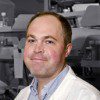
It may now be possible to identify the first-stage Parkinson’s patients who will go on to develop dementia, according to a study conducted at the Institut universitaire de gériatrie de Montréal by Dr. Oury Monchi, PhD, and his postdoctoral student, Dr. Alexandru Hanganu, MD, PhD, both of whom are affiliated with Université de Montréal. These findings were published in the journal Brain. Continue reading














